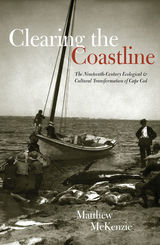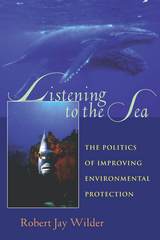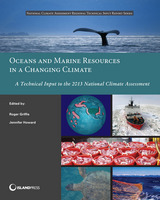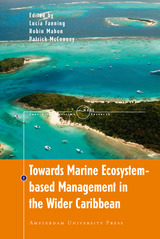
California’s experience provides a rare opportunity to learn from a collaborative public process involving private interests and science-intensive decisions. Determined to do just that, Steven Yaffee, a renowned expert on negotiation and collaborative decision making, spent hundreds of hours researching the MLPA process in an effort to understand how California succeeded where other efforts have failed. The result is Beyond Polarization, a highly readable insider’s perspective on complicated decision-making processes and the strategic choices necessary for success. The book follows the initiative process region by region, each with its unique stakeholders and geographic concerns. These lessons can be applied to similar collaborative processes across the country and world.
Beyond Polarization presents an optimistic message about the public policy process in a time of civic division. It offers reassurance that, by using proven decision-making processes, policymakers, scientists, and local citizens can successfully collaborate to manage and protect natural resources we all have a stake in.



Prepared for the 2013 National Climate Assessment and a landmark study in terms of its breadth and depth of coverage, Oceans and Marine Resources in a Changing Climate is the result of a collaboration among numerous local, state, federal, and nongovernmental agencies to develop a comprehensive, state of the art look at the effects of climate change on the oceans and marine ecosystems under U.S. jurisdiction.
This book provides an assessment of scientific knowledge of the current and projected impacts of climate change and ocean acidification on the physical, chemical, and biological components and human uses of marine ecosystems under U.S. jurisdiction. It also provides assessment of the international implications for the U.S. due to climate impacts on ocean ecosystems and of efforts to prepare for and adapt to climate and acidification impacts on ocean ecosystem, including
· Climate-Driven Physical and Chemical Changes in Marine Ecosystems
· Impacts of Climate Change on Marine Organisms
· Impacts of Climate Change on Human Uses of the Ocean
· International Implications of Climate Change
· Ocean Management Challenges, Adaptation Approaches, and Opportunities in a Changing Climate
· Sustaining the Assessment of Climate Impacts on Oceans and Marine Resources
Rich in science and case studies, it examines the latest climate change impacts, scenarios, vulnerabilities, and adaptive capacity and offers decision makers and stakeholders a substantial basis from which to make informed choices that will affect the well-being of the region’s inhabitants in the decades to come.

With marine ecosystems endangered by a warming climate and exploding human population growth, a critical transformation is taking place in the way the world's ocean resources are managed. Marine Ecosystem-Based Management presents a state-of-the-art synopsis of the conservation approaches that are currently being translated from theory to action on a global scale. With contributions from an international team of experts, this volume synthesizes the scientific literature of holistic practices in ecosystem-based management (EBM), focusing on protecting the marine ecologies that humans and countless other organisms vitally depend upon.
Human uses of ocean ecosystems have usually been divided into separate sectors--fisheries, transportation, tourism, and recreation, for example--and ecosystem boundaries defined as much by politics as geography. This approach is giving way to a broader strategy based on integrated management of human activities in scientifically identified regions of the marine environment. Spanning a range of issues from the tropics to the poles, the authors present analyses of open ocean systems and high-impact regions such as coastlines, coral reefs, and estuaries. Methods of modeling and evaluating marine EBM are explored, as well as the role of governmental and other regulatory frameworks in ocean management and the lessons to be learned from past ecological interventions.
It is now widely recognized that any viable strategy for sustaining the world's oceans must reflect the relationships among all ecosystem components, human and nonhuman species included. Marine Ecosystem-Based Management is an in-depth report of new advances in the rapidly evolving discipline of coupled Human-Ecological Systems.

In order to ensure sustainable use of their shared marine resources, the nations of the West Caribbean Region must adopt an approach that encompasses both the human and natural dimensions of ecosystems. This volume directly contributes to that vision, bringing together the collective knowledge and experience of scholars and practitioners within the wider Caribbean to assemble a road map towards marine ecosystem based management for the region. The research presented here will be used not only as a training tool for graduate students, but also as comparative example and guide for stakeholders and policy makers in each of the world’s sixty-four large marine ecosystems.
READERS
Browse our collection.
PUBLISHERS
See BiblioVault's publisher services.
STUDENT SERVICES
Files for college accessibility offices.
UChicago Accessibility Resources
home | accessibility | search | about | contact us
BiblioVault ® 2001 - 2024
The University of Chicago Press









